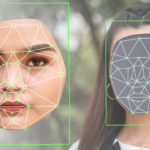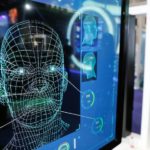 My controversial thoughts about cyber tangi are below so as to raise debate/ideas and to make people think about cyber tangi, or to at least respect the rights of any whanau who want a cyber tangi.
My controversial thoughts about cyber tangi are below so as to raise debate/ideas and to make people think about cyber tangi, or to at least respect the rights of any whanau who want a cyber tangi.
When my children’s mum from Taranaki suddenly and unexpectedly passed away almost three years ago at the age of 34, there was little time to let her immediate whānau in New Plymouth, Taupo and Australia know the news and for them to attend the tangi. I even had to extend the date of the burial by two days (in consultation with funeral director) so that those who were coming could get down to Christchurch to be with her for at least a day or two. Simon Day of the Sunday Star Times wrote briefly about the story and of the horrible decision my sister-n-law Vicki Jane had to make, to leave my niece in Australia.
Many of Janine’s whanau couldn’t attend the tangi due to excessively high plane fares due to the short notice. Those who couldn’t attend were left with an extra emotional scar of not being able to farewell their loved aunty, cousin, mate and niece.
As a seasoned ICT professional with broadband and the technical ability to stream the tangi and knowing that there were whanau not able to attend, I wanted to set up a live stream of the tangi so that all of Janine’s whanau would have an extra opportunity to be involved and to say goodbye to their loved one; but Māori cultural protocol that I was brought up with and respected told me not to do it.
I was brought up to respect two worlds: Māori and Pākehā. Now I debate with myself and question my own beliefs. I am a Cyber Māori who believes that Māori culture needs to grow and adapt more to the technological evolution we are all a part of. It is especially important in these times of Māori ownership rights being disputed by the crown over Radio Spectrum for Māori, and the governments commitment to rural broadband and Nga Pu Waea, to consider how our culture can best use such technology to enhance whakawhanaungatanga, iwitanga, te reo and economic benefits for all Māori .
I question why do we as Māori not encourage more cyber tangi considering that over 18% of Māori live in Australia, while a another small percentage are dispersed all over the world. It is well known that not all Māori overseas are financially well off. It is also a fact that in New Zealand we have many Māori who live away from their marae, often in another island. Flights and the rising cost of petrol and a ferry trip can economically cripple a family who want to attend a tangi. Saving up for a tangi that may not happen for years is not an economic reality for many families who struggle to survive by living day to day, or week to week.
It is likely that in time to come with so many Māori living in Australia that we will see a reverse in the current issue, whanau in New Zealand will be planning how to get to Australia for a tangi for the whanau who have become integrated into Australian life and want to be buried in Australia.
We are told that cyber tangi is a breach of Māori culture and the whole point of a tangi is to bring people together to grieve and that you can only physically be in attendance to grieve, to feel the ihi, wehi and the wairua of the moment. I debate this as we were once told that you could not physically see someone in real time that is on the other side of the world, that families become disjointed when a parent spends too much time away from the home. Today families and friends connect together online in real time as a natural part of their day. We come together and talk, interact and share in groups that are both physical and online in tools such as Skype, Viber and the many other technologies on the Internet.
Furthermore, ask anyone who watched the Māori Queen Te Arikinui Dame Te Atairangikaahu’s tangi on television which was viewed by over 430,000 people and can still be seen here if they felt they were there. Watching Te Arikinui Dame Te Atairangikaahu’s tangi myself, I felt as though I was physically there.
Marae and Iwi need to seriously consider the new cultural shift that will occur with high speed Internet. Marae and Iwi that remain ignorant of the potential of the Internet to promote and enhance Māori culture will likely become redundant in this digital world.
We live in a digital age where within minutes Tribute Pages are set up on Facebook for recently deceased, beating the media and often saving heartache for the deceased’s family contacting friends. This alone, showing images of the person in a digital format would contradict aspects of Māori culture that I was brought up with. Yet most of us have our image in a digital format, even if it is our drivers licence or passport.
I remember my Aunty Nixi from Arahua Pa who refused to have her photo taken and the many other whanau who believed it was tapu. Now as a society we are accustomed to having kaumatua in television, radio, print and the Internet. Even deceased kaumatua appear in media and the Internet in government archives personal web sites.
Photos are copied into magazines and newspapers of which many are destroyed or recycled. The debate that whakapapa and tipuna images and names should not be made digital is becoming less of an issue now, but it has always been ok for them to be recorded for television documentaries, spoken about on the radio, news media etc. Yet a television/radio transmission will bounce around the world and in space for hundreds of light years and probably beyond. Hence, all of our tipuna names, oral histories and whakapapa that has been broadcast on television and radio are still flying through space.
In relation to the radio and television, the same information that was used on the Internet bounces around wires and satellites in packets of 0’s and 1’s. I fail to understand the arguments about cyber tangi that are based on wairua and other spiritual issues. The wires and satellites that distribute the Internet travel though Papatuanuku’s digital veins and through Ranginui as so eloquently described in the Waitangi Tribunal decision relating to Radio Allocations.
I question if we have become so worried about preserving a culture that sits to the side of today’s society that we will create issues and push our younger people away. If our tipuna had this technology when they migrated from Hawaiki to Aotearoa, and considering that Captain Cook remarked that the Māori people are quick to adapt to new technology, certainly our tipuna would have adapted to the technology and would have welcomed cyber tangi, cyber hui and many more innovative uses.
Today we as an ethnic group are too slow to adapt to new technology due to misunderstandings about how technology works and a fear of change due to a lack of understanding of many of the old customs that have slowly modified the older and stricter protocols and the way we think of our customs.
We need to consider the present and the future and adapt to the technology that will enhance us as a people. High speed internet and new technology will quickly change Māori culture and move the marae and the traditional face to face meetings into a cyber world. Our tribal leaders and politicians need to begin thinking about how we will adapt and preserve our culture using broadband internet and using some of the same technology the Waitangi Tribunal in 2000 allocated to Māori – radio spectrum which will allow for a whole range of new possibilities and benefits to Māori.
Take a survey about Cyber Tangi
What could a cyber tangi look like?
There are a number of free technologies available that vary in quality and purpose, but in the very least a high speed internet connection would be required. The cyber tangi may be a continuous live stream of the whole tangi or of various parts of the tangi as seen in the links below:
http://www.youtube.com/watch?v=7c-5walevtE (5 parts)
http://www.youtube.com/watch?v=SRaaqAYpiXE
http://www.youtube.com/watch?v=L4QXSiCTzdU
Virtual powhiri could be adapted as could a virtual paepae in much the same way as corporate board meetings utilise video conferencing and that the majority of the tiakanga of a tangi can be modified for the digital age.
For anyone who is considering a cyber tangi ustream.com is one suggestion. Those with smart phones could use facetime, Skype or any other Instant Messenger. Perhaps using a recording of the tangi and added to YouTube or Facebook, so that those who are not able to physically be there can still be involved.





Leave a Reply